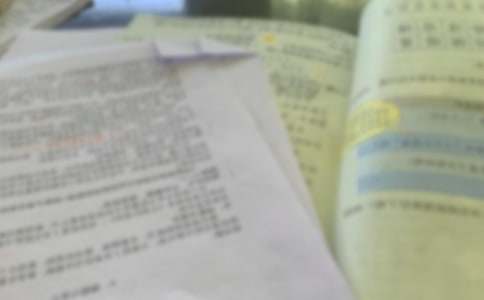Don' teat in class說(shuō)課稿
Section A 1a to 4

教學(xué)內(nèi)容和步驟
教學(xué)意圖和說(shuō)明
Step1 Warming up
After greeting, teacher says:" Im happy. Do you know why "
Let the students guess.
Tell them:" Because I heard a nice song. Do you want to listen to it "
"What do you think of the song "
"Do you like listening to music "
"Can you listen to music in the classroom "
講授新課之前與學(xué)生自由交談,可以消除學(xué)生的緊張感和對(duì)英語(yǔ)學(xué)習(xí)的畏懼感.讓學(xué)生猜測(cè)還能激發(fā)學(xué)生興趣,很快把學(xué)生的思維引導(dǎo)到學(xué)習(xí)中.音樂(lè)是大部分學(xué)生所感興趣的,談?wù)撘魳?lè)貼近生活,并且讓學(xué)生有話可說(shuō),順理成章的引入話題.
Step2 Presentation
Take out an apple.
T: Can I eat an apple in class now "
Ss: No, you cant
T: Can you eat apples in class now
Ss: No, we cant.
Repeat it with a cigarette.
Can和cant 的句式在七年級(jí)上冊(cè)書(shū)已經(jīng)有所講授,但是用法有所差別,不再是用can和cant表示能力,而是表示許可.所以可以輕句型而重用法.運(yùn)用實(shí)物講授知識(shí),既直觀形象,又方便有效.
Step3 Practice
Show the students some pictures ,then let the students talk about them with" Can you/we… "
S1.Can we arrive late for class.
S2.No, we cant. We cant arrive late for class.
鞏固剛學(xué)過(guò)的新知識(shí),除了一些機(jī)械操練外,更重要的是設(shè)計(jì)有意義的.句型操練加以鞏固和記憶,這一部分聯(lián)系可以發(fā)散學(xué)生思維,想出各種課堂上能或不能做到事情,為同桌練習(xí)可以擴(kuò)大練習(xí)面,讓每一個(gè)學(xué)生都有開(kāi)口的機(jī)會(huì).
Step4 Game
Every student makes a list of six rules. Use "can" in the rules. Put the rules in a bag. And take a different set of rules out. Now find the students who wrote these rules.
把剛才的聽(tīng)說(shuō)轉(zhuǎn)化為書(shū)寫(xiě),但是以游戲方式給出,可以降低學(xué)生的畏懼感,提高學(xué)生興趣.調(diào)動(dòng)學(xué)生各方面的情緒,激活他們已有點(diǎn)知識(shí)水平.既復(fù)習(xí)句子,有活躍了課堂氣氛,讓學(xué)生在輕松中完成知識(shí)的積累.
Step5 Listening
Finish Section A 2a 2b
聽(tīng)力練習(xí)檢測(cè)所學(xué)到知識(shí)的掌握和情況.提醒學(xué)生做聽(tīng)力練習(xí)注意聽(tīng)對(duì)話的語(yǔ)氣語(yǔ)調(diào),學(xué)會(huì)抓關(guān)鍵詞,聽(tīng)重點(diǎn).
Step6 Presentation
Show the students some picture of the students who are breaking school rules and ask:" Can we … "Present "Dont…"
再一次鞏固所學(xué)知識(shí)的掌握情況.同時(shí)引出本單元重點(diǎn)知識(shí):祈使句.用cant替代dont的用法,降低難度,便與理解.
Step7 March
Finish Section A 1a
書(shū)上的圖片形象直觀,讓學(xué)生明白祈使句的用法與作用.同時(shí)也可以對(duì)學(xué)生進(jìn)行思想教育,要求學(xué)生遵守校紀(jì)校規(guī).
Step8 Listen
Finish Section A,1b
First, let the students guess what rule Peter/Selina/Nick is breaking.
聽(tīng)力練習(xí)最應(yīng)該注意的是聽(tīng)力策略,這部分內(nèi)容可以讓學(xué)生猜一下,在降低難度的同時(shí),讓學(xué)生有更高的熱情參與到本環(huán)節(jié)中.
Step9 Competition
Have a competition between boys and girls; let them say as many school rules as they can
T: There are many school rules in our school. Can you name any of them
S1: Dont eat in class.
S2: WE cant fight…
這部分是對(duì)本課所講授知識(shí)的總結(jié),以達(dá)到查漏補(bǔ)缺的效果.由于七年級(jí)學(xué)生好勝心比較強(qiáng),通過(guò)比賽形式可以來(lái)檢查課堂教學(xué)成果,可以引起學(xué)生的興趣和共鳴,發(fā)散學(xué)生思維,充分發(fā)揮學(xué)生的想象力和能動(dòng)性,激發(fā)學(xué)生的表現(xiàn)欲.
Step10 Homework
To sum up our school rules.
To find out some signs around us and try to draw them out.
布置作業(yè)可以鞏固在本節(jié)課中的學(xué)習(xí)內(nèi)容,也要學(xué)生學(xué)會(huì)為下節(jié)課做一定的課前準(zhǔn)備.
【Don' teat in class說(shuō)課稿】相關(guān)文章:
An English Class優(yōu)秀作文05-20
An Interesting Class英語(yǔ)作文范文08-16
高考英語(yǔ)滿分作文:Green Action in Our Class02-19
二年級(jí)英語(yǔ)作文:關(guān)于我們的班規(guī) Class Rules04-23
初中地理說(shuō)課稿模板《北京》說(shuō)課稿12-29
《長(zhǎng)城》說(shuō)課稿06-03
《翠鳥(niǎo)》說(shuō)課稿06-02
音樂(lè)說(shuō)課稿05-31
《乙醇》說(shuō)課稿04-28
雷雨說(shuō)課稿04-28